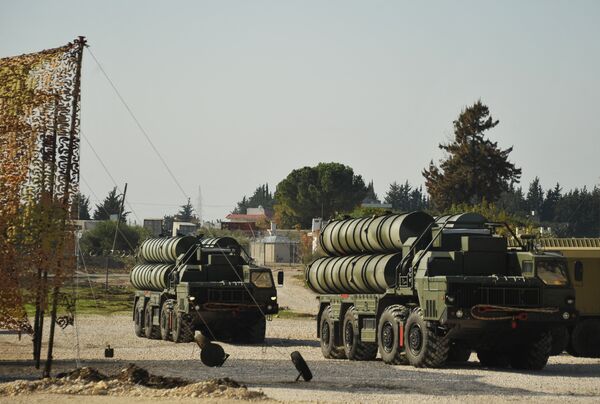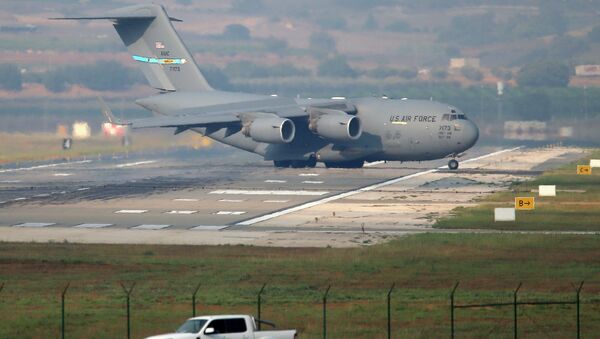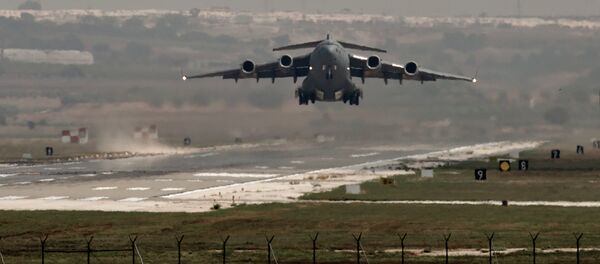Earlier this week, Turkish media reported that Ankara was prepared to allow the Russian military to use southern Turkey's Incirlik Air Base for its anti-terrorist operations in Syria. The news was based on a television interview with Foreign Minister Mevlut Cavusoglu, who seemed to have indicated that Ankara was ready to cooperate with all countries fighting Daesh (ISIL) terrorism, including Russia, and would be willing to provide Moscow the use of the Incirlik airbase for this purpose.
Speaking to Sputnik Turkey, Lieut-Gen (ret.) Dr. Erdogan Karakus, the Chairman of the Turkish Union of Retired Officers, suggested that cooperation was definitely possible, even necessary, and not only in the fight against Daesh.
"Without a doubt, bilateral cooperation in the fight against terrorism is very important for both Turkey and Russia. For Turkey, Russia holds paramount importance. We are historical neighbors, and [therefore] our relations have to be very good. The situation in the region depends on our cooperation. In my view…the growth of Russia's presence in the Middle East will make a tremendous contribution to the maintenance of regional stability."
As for the prospects for cooperation at Incirlik, Karakus, himself the former commander of a military air base, suggested that "from a technical standpoint there are no problems," even if the political will does not presently exist.
Ultimately, the officer noted, Turkey is "absolutely ready" for expanded military cooperation with Russia. "The potential for cooperation in this area was considered earlier. Specifically, Turkey was interested in the purchase of the S-300 and S-400 air defense systems. Unfortunately, thanks to events [specifically the Syrian crisis], plans to deploy Chinese or Russian air defense systems had to be postponed."

Nevertheless, Karakus insisted, "in the future, this issue could well be included in the agenda of the developing Russian-Turkish dialogue. It would contribute to the improvement and strengthening of our relations."
Late last month, the Turkish government surprised many observers of international politics by taking steps to try to mend relations with Israel, Russia, and possibly even Syria, after its earlier policies had antagonized its neighbors and left the country internationally isolated. Analysts, however, have speculated on the sincerity of President Recep Tayyip Erdogan's apology to Russia, and on the actual prospects for cooperation against terror, given Turkey's long-standing policy of supporting Islamist militants in neighboring Syria and attacking its own Kurdish minority.



